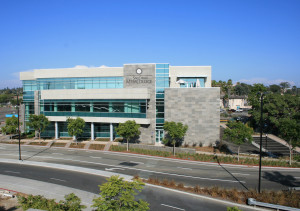Momentum Keeps Building for Community Colleges to Confer Baccalaureate Degrees
By Bob Woods
June 15, 2015
With legislative approval in bellwether California, 4-year degrees at community colleges are offered in 22 states — and counting.
Editor’s Note: This article is the first in a two-part series on community colleges and baccalaureate programs.
A decade ago, 14 states allowed their community colleges to confer baccalaureate degrees, a bold, sometimes controversial departure from the colleges’ tradition of conferring two-year associate degrees and skills-based certificates. Over the ensuing 10 years, despite opponents’ concerns about “mission creep” and invading the turf of four-year colleges and universities, the higher-education world did not stop spinning. Instead, the number of states on board has increased to 22, with California most recently joining the ranks last September, after Gov. Jerry Brown signed a bill approving a pilot program involving up to 15 community colleges.
Still, nationwide, only about 60 community colleges are currently granting bachelor’s degrees — virtually all of them in technical and applied fields such as health care, hospitality, manufacturing and mechanics — to only about 2 percent of their student populations. Nonetheless, as employers increasingly require four-year degrees, and as higher-priced four-year institutions fail to meet the demand, baccalaureate programs at community colleges are expected to proliferate.
“At some point down the road, almost every state will offer them,” predicts Michael Hansen, chairman of the Community College Baccalaureate Association (CCBA), an affiliated council of the American Association of Community Colleges that promotes such programs. Hansen is also president of the Michigan Community College Association, which enacted its own baccalaureate program in 2013.
Four-year degrees in California
California’s Baccalaureate Degree Pilot Program will be limited in scope, but it could be an influential development, considering that the Golden State’s 112 community colleges represent the largest system of higher education in the country, with 2.1 million students — 24 percent of all community college students in the United States. Although California hasn’t been leading this movement, as it has on issues such as the environmentalism, technology and health care, its initiative will be under the microscope.
“Moving forward, knowing the size of the system and its economic influence on the rest of the country, we’re going to be watched,” says David Morse, an English professor at Long Beach City College.
Morse will most definitely be watching: He’s also president of the Academic Senate for California Community Colleges (ASCCC), which represents faculty members at all 112 institutions. The ASCCC was opposed to Senate Bill 805 and several earlier attempts championed by state senator Marty Block (D–San Diego).
“Going to the level of doing bachelor’s degrees was a significant expansion of our mission,” Morse says, recalling previous efforts dating back to 2004. “One of the major objections was, we were in an economic downturn and didn’t have the resources to do the things we were already being asked to do. Our question was, ‘Where are the resources going to come from?’”
The ASCCC also had questions about how upper-division classes would be defined and what faculty requirements for teaching the classes would be implemented. While not satisfied that its concerns were adequately addressed, now that the bill has been signed, the faculty group is on board. “We certainly want to make these the best degrees we possibly can,” Morse says, “so we will absolutely engage and participate in the development of the parameters of these degrees.”
The California program, like those in other states, is prescriptive. The participating schools can offer only one baccalaureate degree; none of the degrees can duplicate those offered at any of the four-year California State universities or University of California schools; and the degrees must be in vocational fields. Among the state’s 72 community college districts, 36 applied for the Baccalaureate Degree Pilot Program’s 15 slots, and 12 schools were approved last month. One is San Diego Mesa College, which will launch a Health Information Technology (HIT) baccalaureate program in the fall.
 Mesa College already grants an associate degree in HIT through its Allied Health Education and Training Facility, which opened in 2009. “We have a health information advisory board for the two-year program, and that was the genesis for deciding what degree to consider,” says college president Pamela Luster. San Diego has a large healthcare system, including Rady Children’s Hospital and the Scripps Research Institute, and there’s a growing need to help them manage massive amounts of digital health information. “They have been pushing us to do this, because they want students with baccalaureate degrees and are ready to hire them,” Luster says.
Mesa College already grants an associate degree in HIT through its Allied Health Education and Training Facility, which opened in 2009. “We have a health information advisory board for the two-year program, and that was the genesis for deciding what degree to consider,” says college president Pamela Luster. San Diego has a large healthcare system, including Rady Children’s Hospital and the Scripps Research Institute, and there’s a growing need to help them manage massive amounts of digital health information. “They have been pushing us to do this, because they want students with baccalaureate degrees and are ready to hire them,” Luster says.
Mesa College will introduce its four-year HIT program with a cohort of 32 freshmen this fall. A year later, the school will start offering the junior-level courses to students with a two-year HIT degree, as well as upper-division general education courses. For details on the multifaceted preparation for that program and others, read the second part of this article.
Expanding opportunities in Florida
In stark contrast, St. Petersburg College (SPC), in Florida, will be continuing its well-established bachelor’s degree program that has been up and running since 2001. SPC was the first of 28 community colleges in the state that now confer four-year degrees. Even with that long history, only about 4,500 of SPC’s 33,000 students are enrolled in the 23 different baccalaureate programs, ranging from business administration to veterinary technology, which would seem to assuage any fear that community colleges are trying to transform themselves into four-year institutions.
“We have always referred to these as workforce baccalaureates,” says SPC president William Law Jr., differentiating them from bachelor’s degrees granted at Florida’s public and private four-year institutions. “The programs are very focused on people who need the credential to jump-start or enhance their careers. I don’t see it as a redefinition of our mission. It’s a logical enhancement of our mission. It is classroom teaching at its finest.”
States finding their own ways
Legislatures in several other states, including Ohio, are debating the merits of community colleges conferring bachelor’s degrees. “It’s going to keep picking up steam and will not be that controversial,” says Jill Wakefield, chancellor of the Seattle College District, whose three colleges confer bachelor of applied science degrees. “In a couple of years, I wouldn’t be surprised to see the number double.
“California could be the tipping point,” adds Wakefield, the recipient of the CCBA’s 2013 Pioneer Award. “Each state is figuring it out in their own way. The worst fears haven’t come true. In fact, it’s led to success at many levels. This could well be one of those watershed moments in the history of community colleges.”









